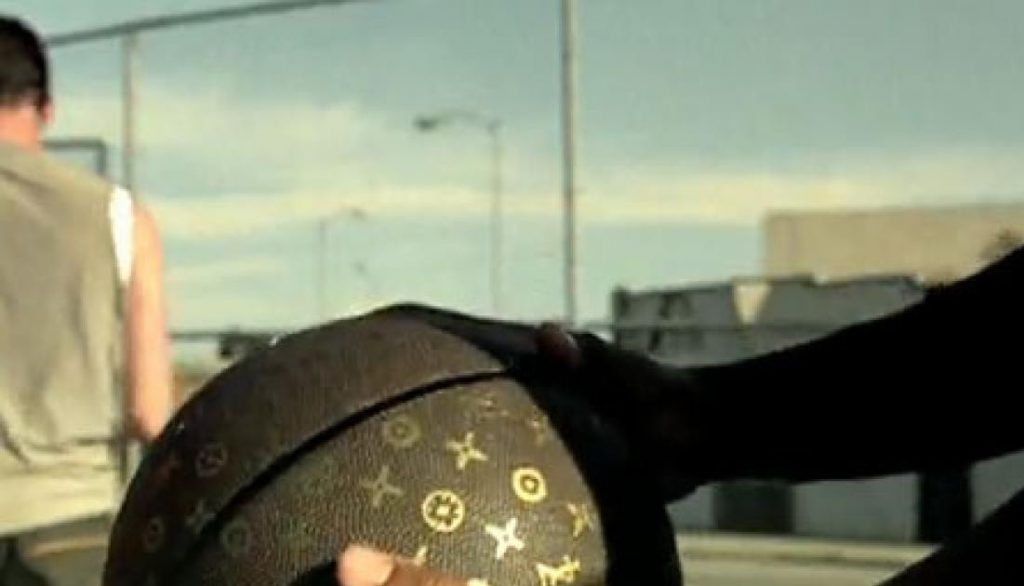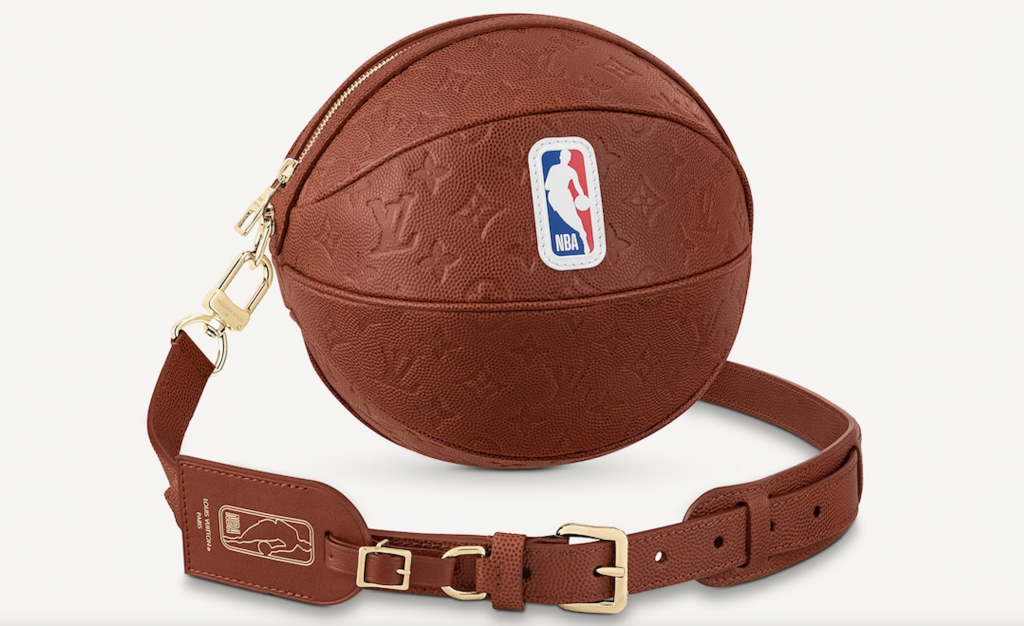As part of its ongoing collaboration with the National Basketball Association, Louis Vuitton dropped an interesting new bag, after providing fans with a sneak peek last month. The most noteworthy offering? A $4,450 “Ball in Basket” bag, which takes the form of a Toile Monogram-adorned full-grain leather bag – in the shape of a basketball, of course – complete with gold-hued hardware, a leather strap, and a netted bag lined with Louis Vuitton’s brown and gold monogram. While die-hard Louis Vuitton and/or Virgil Abloh fans are likely to go wild over the latest offerings, for the legally-minded, the bag is proving an interesting one given a certain lawsuit that Louis Vuitton initiated back in 2010.
That lawsuit is, of course, the one that Louis Vuitton filed against Hyundai in the wake of the 2010 Super Bowl during which the Korean automaker ran a 30-second “Luxury”-titled commercial for its then-$20,000 Sonata sedan. In the complaint that it filed in March 2010, a month after game – and the commercial – aired, Louis Vuitton pointed to the commercial, which depicted short vignettes juxtaposing everyday scenarios with luxury ones, such as cops eating caviar in their squad cars, along with a voice-over that asked: “What if we made luxury available to everyone?” During part of the commercial, Hyundai used a basketball covered in what appeared to be its world-famous Toile Monogram.
Setting out claims of trademark dilution and infringement, among others, Louis Vuitton argued that it had been damaged by the carmaker’s unauthorized use of a monogram that looked a whole lot like its famed Toile as part of the commercial, which was viewed by “tens of millions” of Super Bowl viewers and an “untold number” of viewers saw the commercial online. Specifically, Louis Vuitton claimed that by using a lookalike print, Hyundai created an “impermissible association” between “products of inferior quality” (i.e., its cars) and the Louis Vuitton brand in an effort to sell (less than luxurious) cars. In doing so, Hyundai was likely to tarnish the “inestimable value” of – and the enormous goodwill tied to – Louis Vuitton’s marks, which would “reflect negatively on Louis Vuitton.
At the same time, the Louis Vuitton alleged that, among other things, Hyundai’s commercial “intentionally create[d] confusion” among consumers as to the “origin and quality of the products” advertised in the commercial for its own benefit. Hyundai pushed back against LV’s claims, unsuccessfully asserting in a motion for summary judgment that the commercial was “a humorous, socio-economic commentary on luxury defined by a premium price tag, rather than by the value to the consumer,” and thus, was “entitled to First Amendment protection because it is not a mere sales pitch but also comments on broader issues.”

In his March 2012 order dismissing Hyundai’s motion, Judge Kevin Castel of the U.S. District Court for the Southern District of New York not only found that Louis Vuitton met the six-factor test for dilution by blurring, and that Hyundai had acted willfully (“The deliberate alteration to the Louis Vuitton marks [by Hyundai] demonstrates a consciousness that [it] could not lawfully use the marks.”), but that Hyundai was not shielded from liability by a fair use defense because a Hyundai executive had previously admitted that the car company had no intention for the commercial to make any statement about Louis Vuitton or its products, in particular, but instead, of luxury products and/or purveyors as an entire industry/practice.
The court concluded that Hyundai maintained no intent to parody, criticize or comment upon Louis Vuitton, which it held is required in order to prevail on such a defense. It also did not help that a motivating factor behind the commercial, according to the court, was “a desire on the part of Hyundai to change its brand image among consumers,” presumably to a more luxurious one.
The parties ultimately settled the matter out of court in July 2012, shortly ahead of what would have been the start of their trial.
Fast forward a decade, and Louis Vuitton has a monogram-embossed basketball bag of its own, prompting lawyers to think back on the Hyundai case and wonder whether there is a disconnect between the Louis Vuitton v. Hyundai case and Louis Vuitton’s newest offering, while others compared the new LV basketball bag and the since-settled suit to how Barbie-maker Mattel eventually licensing Aqua’s hit song “Barbie Girl” after suing MCA Records and claiming that the song diluted its “Barbie” trademark. (Siding with MCA and tossing out the case in July 2002, Judge Alex Kozinski of the U.S. Court of Appeals for the Ninth Circuit closed the decision by stating, “The parties are advised to chill.”)
From the brand point of view, Leason Ellis partner Martin Schwimmer sees no such disconnect, telling TFL, “I think LVMH and Mattel would argue that there is no contradiction.” The issue, he says, is “not use of their marks on basketballs or in pop songs per se, it is that these usages were not controlled by the trademark holder, and in their view, that makes all the difference.”
Given that the new basketball bag has Louis Vuitton’s name written all over it, quite literally, and is the product of an authorized collaboration with the NBA, there will not be an infringement and/or dilution issues at play here.











